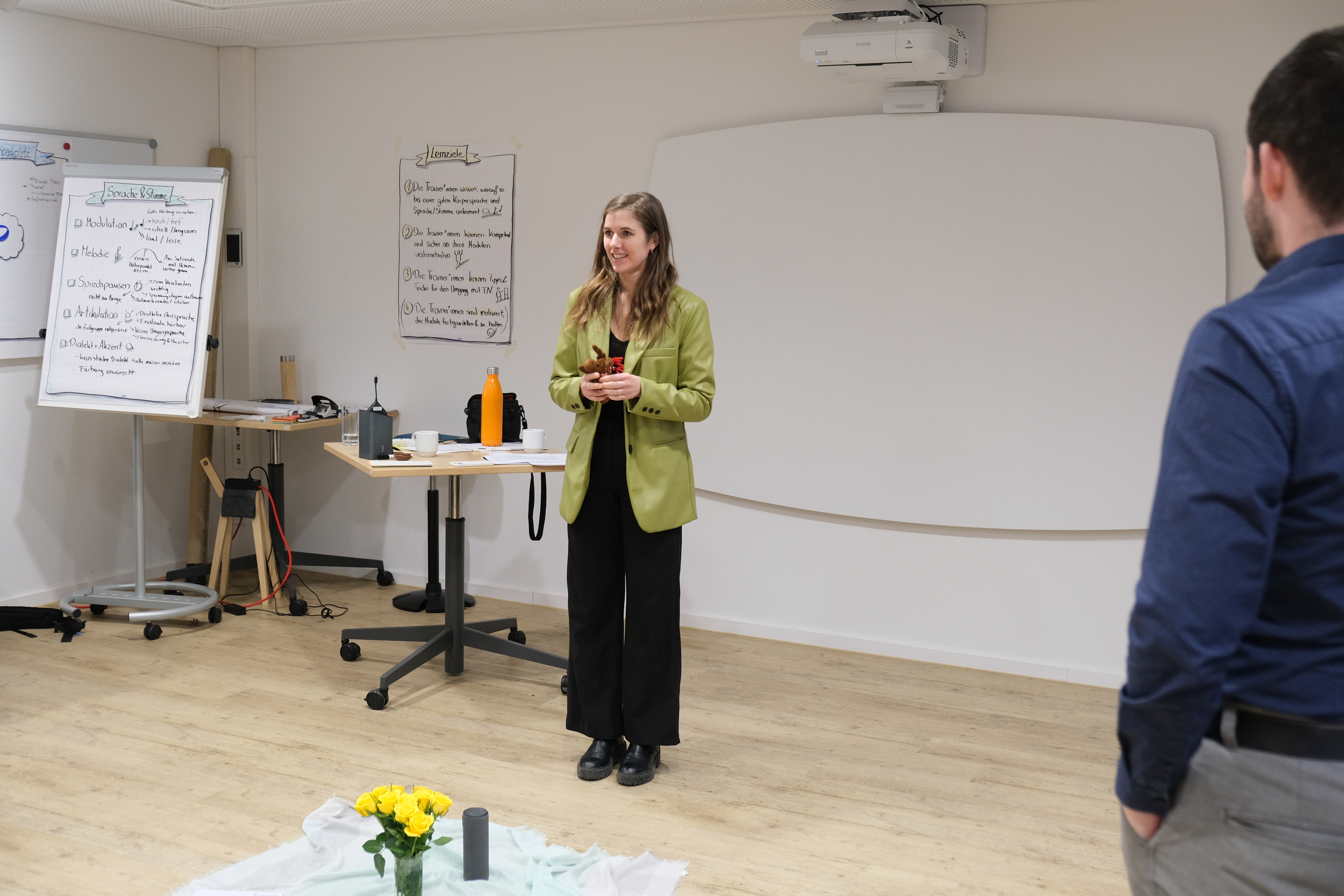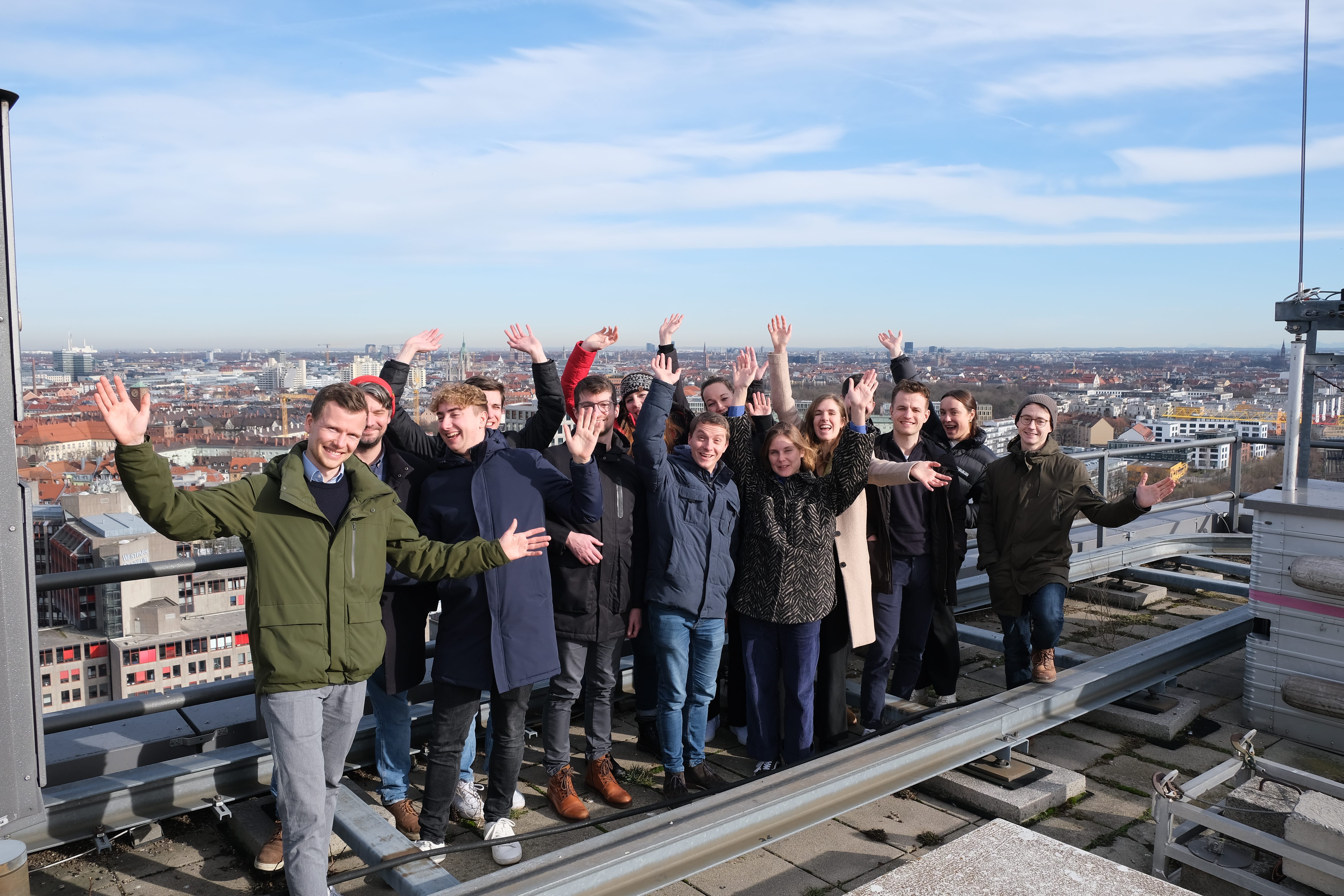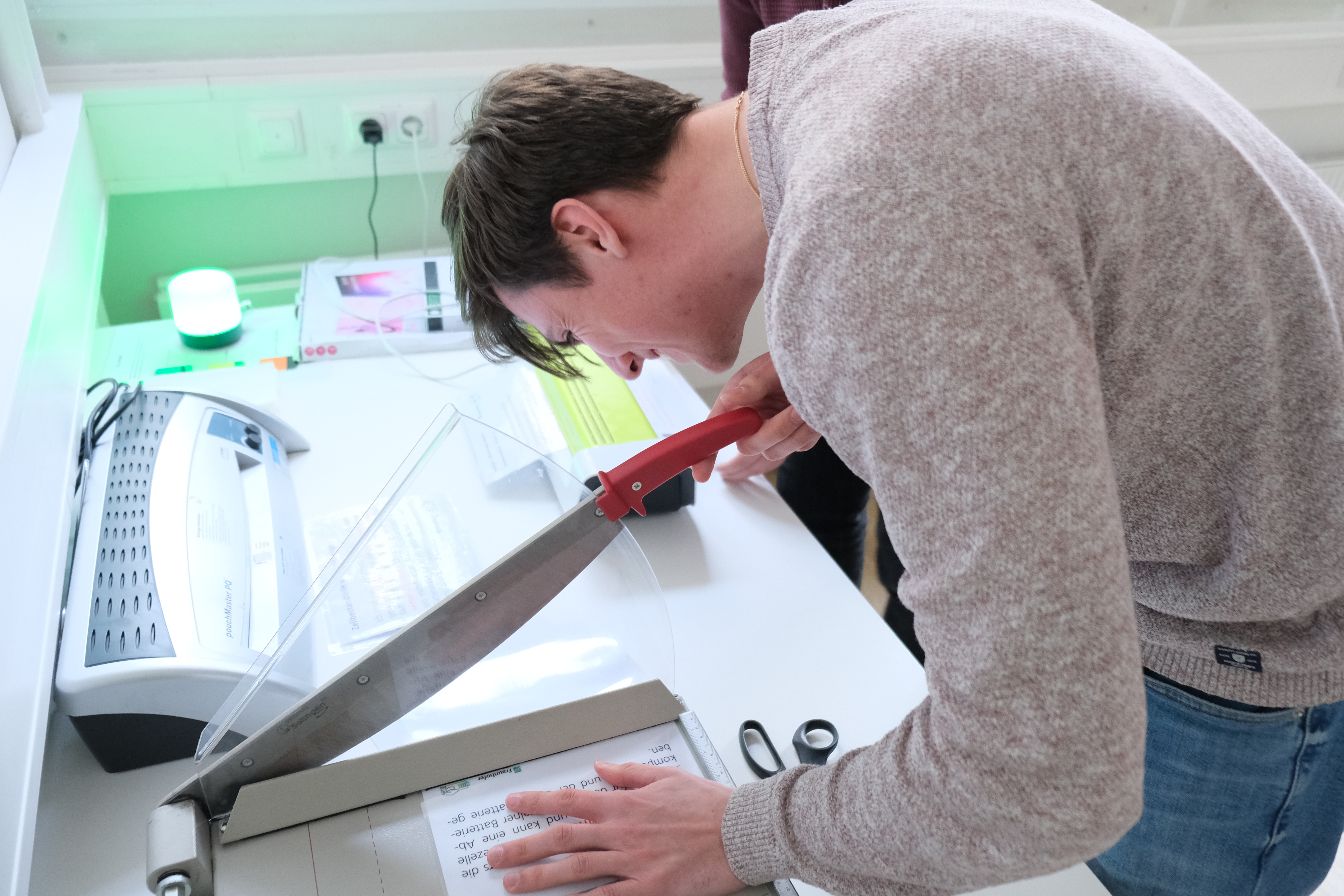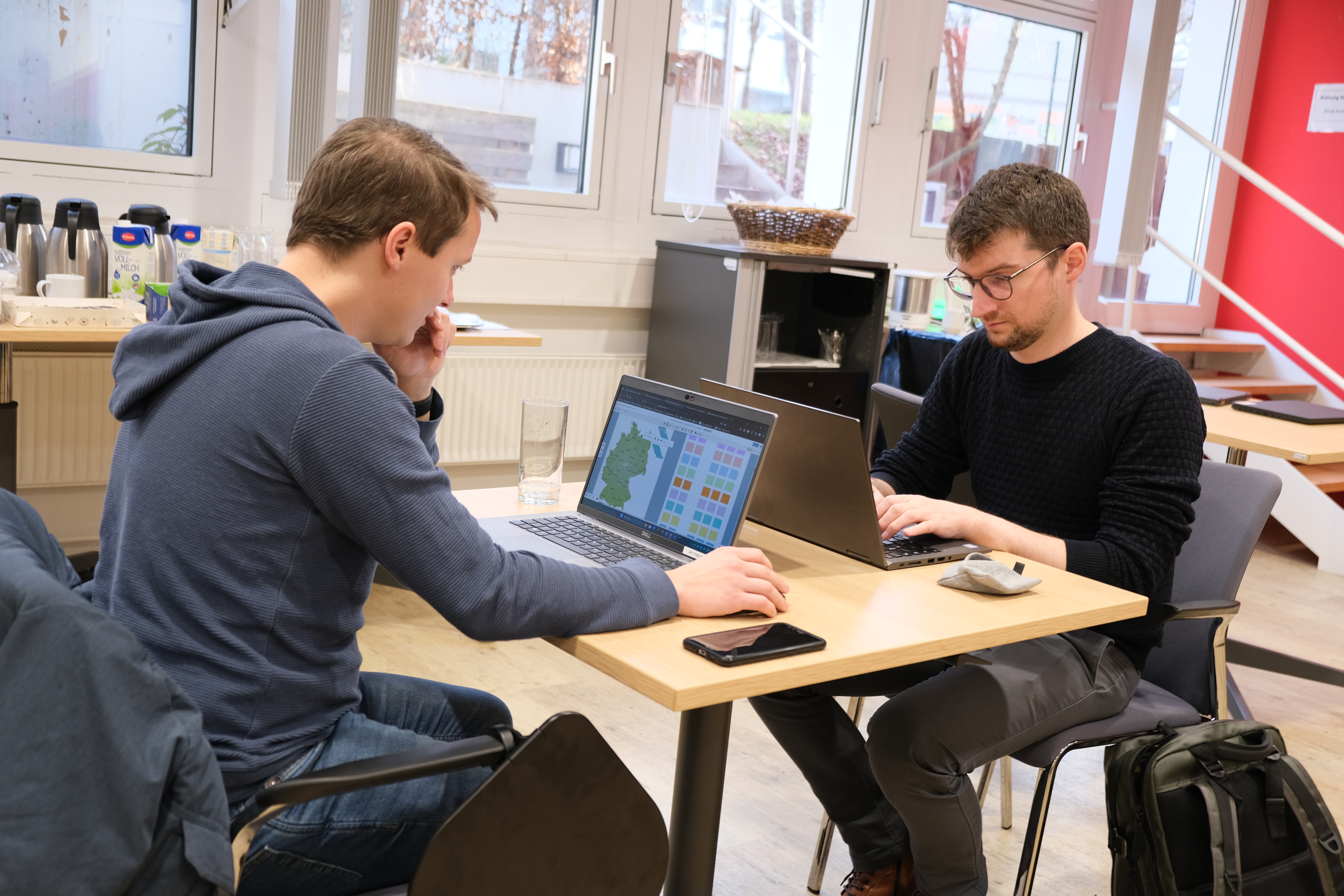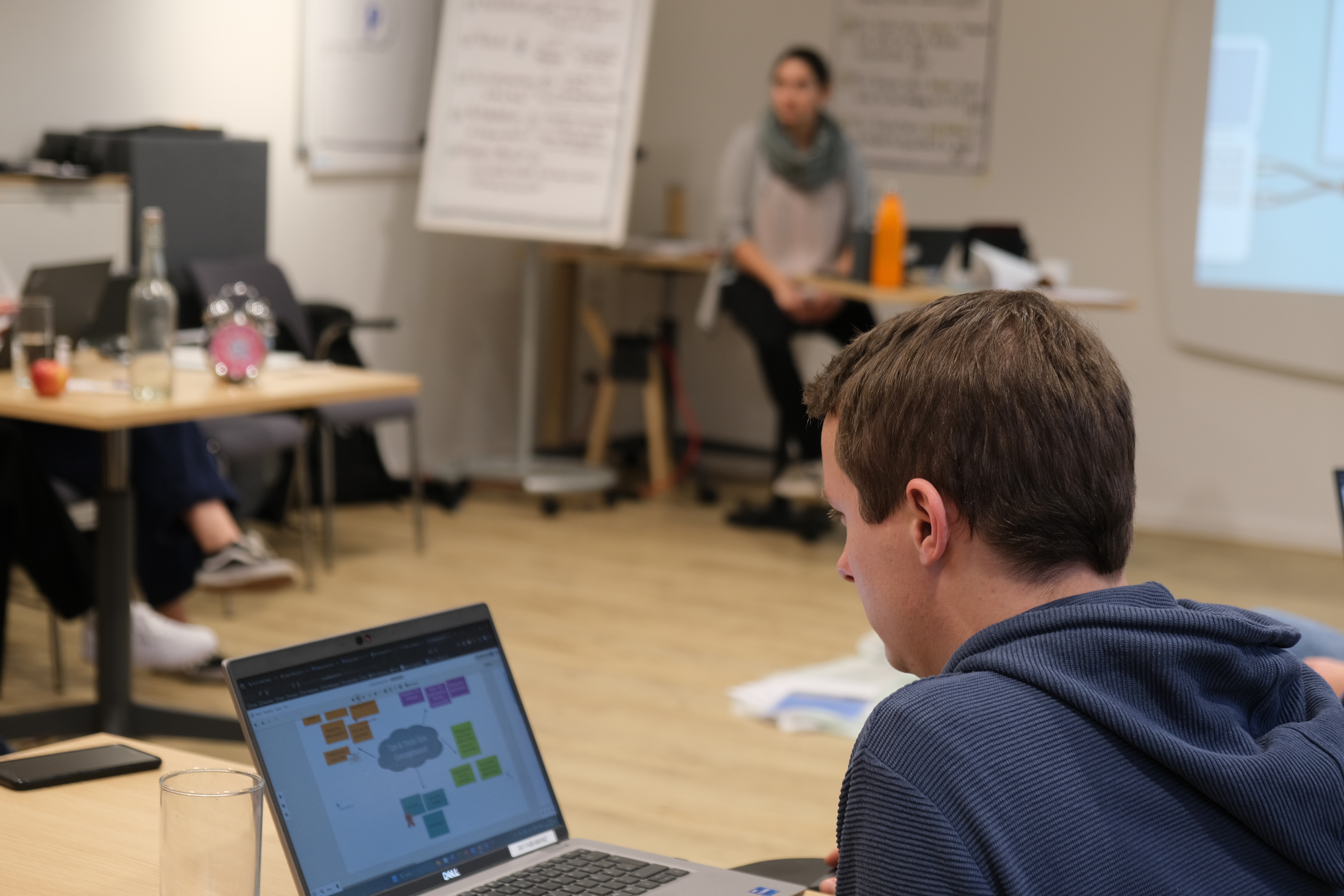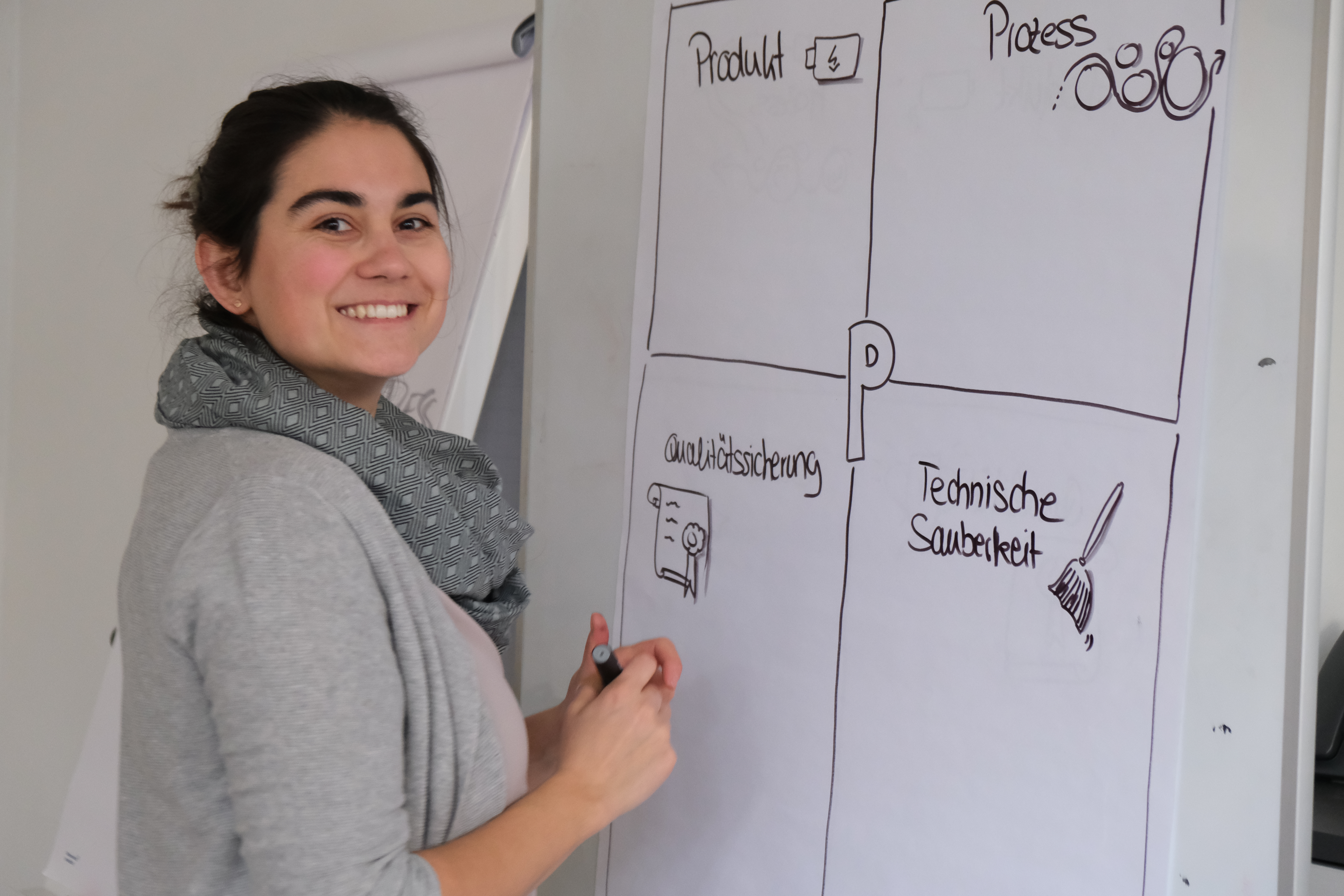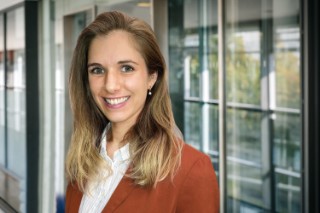People learn in different ways The methodological expertise acquired enables trainers to apply different learning methods and adapt seminars and workshops to the different learning styles and needs of the participants. However, it is not only the learning styles that influence how knowledge can be ideally imparted but also the learning situation: Is it an online training course or does it take place in person? Our trainers know the 'golden rules' of digital and analog seminar formats.
Our motto: Hands-on. Only through interactivity can sustainable knowledge acquisition be achieved, turning 'knowledge' into 'skills'. In all seminars, in addition to teaching theory, great importance is attached to interactivity with and between participants. To ensure this, the European Battery Cell Learning Lab works with the CAIDE model. CAIDE stands for come, activate, inform, develop, evaluate - an approach that prepares each specific learning unit in such a way that the learning objectives can be achieved for all participants. The experts at the Fraunhofer Academy have also provided prospective ELLB trainers with tips and tricks that facilitate and promote interaction to translate theoretical knowledge into practical application. For example, the trainers of the "Experience cell production" module have their participants assemble cell models (stacking - filling - sealing).
Visual processing reduces complexity. The subject of battery production and the value chain is vast and requires expertise from various disciplines including engineering, STEM subjects, and economics. To clarify the connections, creative presentations with suitable icons and graphic recordings can be helpful. Metaphors and narrative approaches can also aid in linking the newly learned with the familiar. For instance, what does the process of cooking pasta have in common with the battery production process? During the project days, a space was created to integrate the newly acquired didactic knowledge with the battery expert knowledge as a template. This approach ensures that the knowledge imparted in the ELLB curriculum modules is useful for both newcomers and advanced learners.
Ultimately, the project days were used for the partial piloting of some modules. The pilots are planned for March 2024 - for all those who want to be the first to be informed, it is worth registering for the pool of interested parties, as we offer exclusive places in the test seminars. Participants will be involved in the development process of our modules through evaluation.
